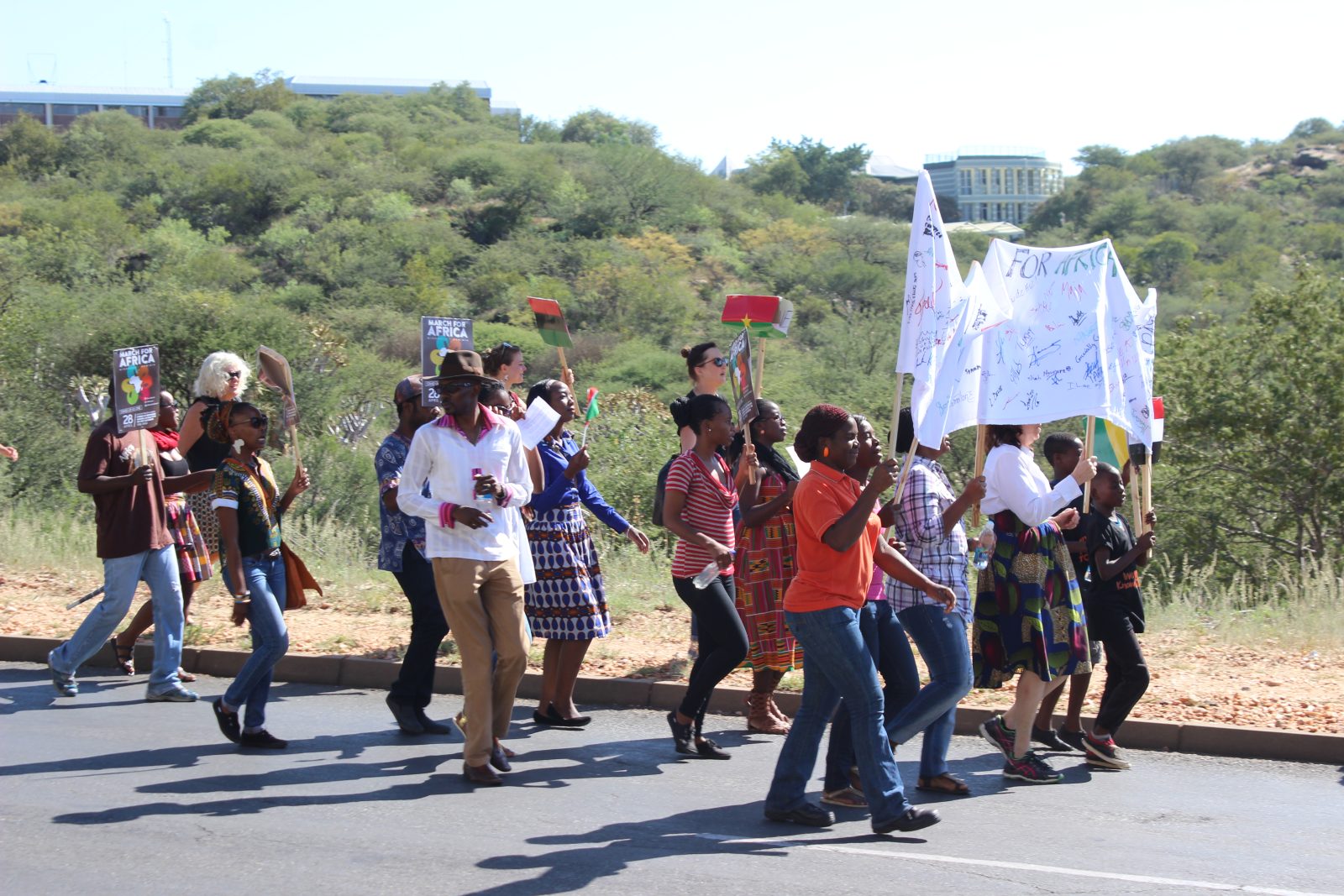Namibians’ right to gather and protest has once again become contentious due to the interpretations of law and the conduct of the police and courts
On Tuesday, 21 March 2023, prominent activists and politicians were arrested in Windhoek’s Katutura suburb in connection with a planned protest march to spotlight youth unemployment on the occasion of Namibia’s 33rd Independence Day celebration.
The arrests followed after the Namibian Police had notified the protest organisers on 17 March 2023 that the demonstration should not go ahead, but should rather be moved to a different date on the grounds of “national security interests”. This reasoning was supported by the high court in the early hours of 21 March 2023 when the organisers tried to get the court to overturn the police’s prohibition of the demonstration on Independence Day.
The Namibian newspaper reported on Monday, 20 March 2023, the contents of the police’s prohibition notice of the 21 March demonstration, citing the notice as stating:
“Taking into consideration the national security interests and the fact that the intended peaceful demonstration is to take place on 21 March 2023, which is Independence Day, the inspector general has reason to believe that the intended peaceful demonstration may cause feelings of hostility.
“Under the powers vested in the inspector general of police in terms of section 3 of the Public Gatherings Proclamation, you are hereby directed to reschedule such intended peaceful demonstration to any date after the commemoration of the national Independence Day.”
The right to protest
In 2003, following a similar attempt by the Namibian Police to restrict and prohibit a demonstration around gender-based violence and child abuse by a coalition of civil society organisations, the Legal Assistance Centre (LAC) published an explainer on the right to protest in Namibia.
The explainer spells out the constitutional and legal basis for the right to protest, stating:
“Article 21 of our Constitution guarantees all persons in Namibia “freedom of speech and expression” and “freedom to assemble peaceably and without arms”. But the Constitution goes even further on the right to express public opinions. Article 17(1) gives all citizens the right to participate in peaceful political activity intended to influence the policies of government, while Article 95(k) declares that government will promote policies aimed at “encouragement of the mass of the population through education and other activities and through their organisations to influence Government policy by debating its decisions”.”
And it explains the limitations on such a right, as well as police powers in the context of public gatherings, stating:
“Of course, most rights are not absolute. The Constitution says that the fundamental freedoms can be subject to reasonable restrictions imposed in the name of national security, public order, decency or morality. However, Article 21 requires that such restrictions must be imposed by law. Article 115 also says that the Namibian Police must have “prescribed powers, duties and procedures in order to secure the internal security of Namibia and to maintain law and order”. “Prescribed” means that the powers of the police must be set out in law, they cannot be vague and uncertain. This is an important form of protection against unbridled power on the part of law enforcement agencies.”
Public Gatherings Proclamation (AG. 23 of 1989)
As indicated earlier, in its notice prohibiting the youth unemployment demonstration from going ahead on 21 March 2023, the Namibian Police cited “section 3 of the Public Gatherings Proclamation”.
The LAC explainer summarises the provisions of the apartheid-era Public Gatherings Proclamation (AG. 23 of 1989) as follows:
“The Public Gatherings Proclamation (AG. 23 of 1989) … requires advance notice to the police of public gatherings involving more than 20 people (with exceptions for events such as church services, funerals and sport). This law gives the police powers to place conditions on public gatherings if there are specific reasons for doing so. The grounds for imposing conditions are limited to serious threats of harm – serious endangerment of the “public peace”, a threat to “public order”, a danger that someone will be seriously injured or killed, a danger that valuable property will be destroyed or damaged, or a possibility that the gathering will encourage “feelings of hostility between different sections of the population” or interfere with the exercise of someone’s valid legal rights. If one of these concerns is applicable, then the police are empowered to impose conditions which are “reasonably necessary” to prevent the problem.”
As with the 2023 demonstration, the organisers of the 2003 demonstration had also turned to the high court to set aside police prohibitions on the planned gathering and to allow it to go ahead as planned, but as in 2023 the court found in favour of the police. The LAC document states in this regard:
“The judge “seemed to indicate that the police have broad powers to act as they see fit to ensure security on important occasions, even where they cannot point to any particular security threat. He emphasised the need to avoid causing any inconvenience to the police in their security arrangements, and seemingly endorsed an extremely broad degree of police discretion.”
As is clear, there are striking similarities in how these two protests, exactly 20 years apart, were legally approached and handled by the police and the high court.

